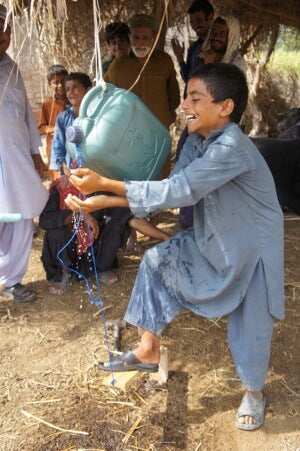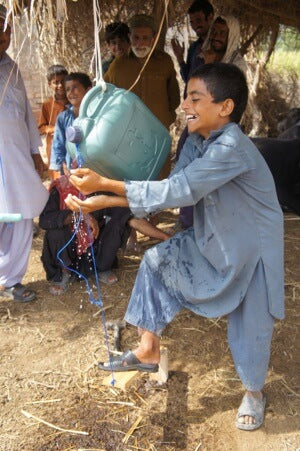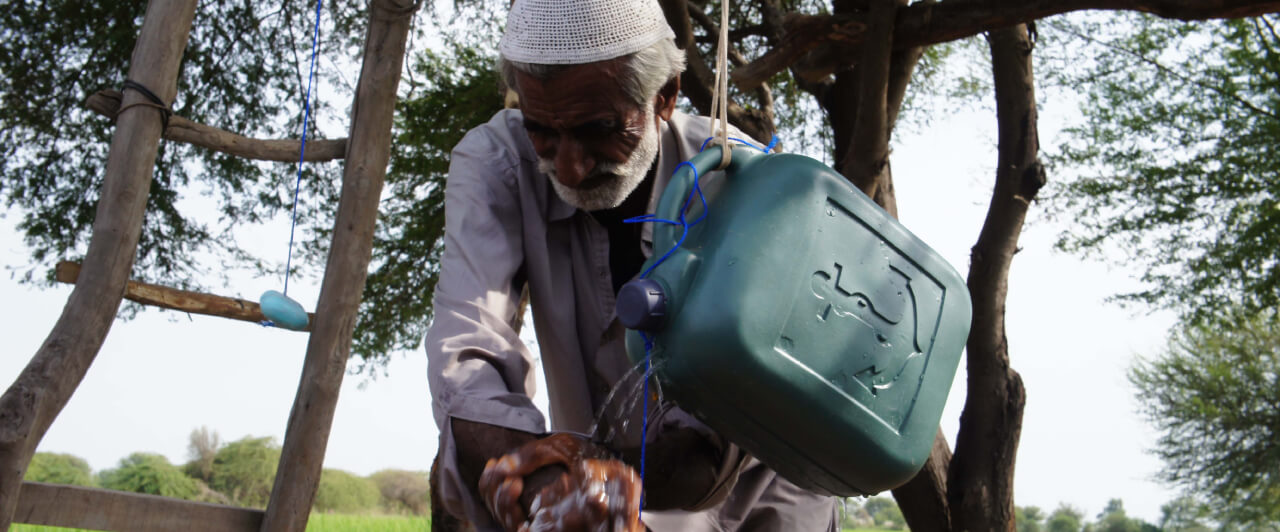
Avoid hand washing facilities

need
Better hygiene provision for the population
activity
Construction of hand washing stations
Measurable performance
Number of handwashing stations that could be set up
Result
Measurable reduction in respiratory and diarrhoeal diseases, especially among children. Measurable reduction in days missed from school due to illness.
Systemically relevant impact
Reducing child mortality from infectious diseases and improving the health situation of the population
background


The good deed
AboutPakistan
Islamabad
Capital city
184,662,000 (2013)
Population
1,296 US$
Gross domestic product
per capita per year
146
Human Development Index
(Human Development Index)




